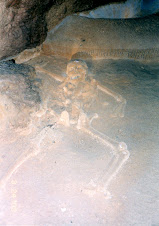Things to ponder for your ~55-60 question MC test (click on items to see a larger version):
1) What are the main ideas regarding the Transatlantic Slave Trade this map is showing?
2) What point(s) is the trade graph making regarding English/British and colonial trade?
3)How does this graph relate to mercantilist theory?
 4) Study the table of immigrants . . . compare the various groups and experiences.
4) Study the table of immigrants . . . compare the various groups and experiences.
5) Examine the trade map below...what is it trying to show you?

6) What types of things are traveling along the various arrows?
For the non-essay assessment, here are the potential questions:
1) Although New England and the Chesapeake region were both settled largely by people of English origin, by 1700 the regions had evolved into two distinct societies. Why did this difference in development occur?
Use your knowledge of the colonial period up to 1700 to develop your answer.
2) For the period before 1750, analyze the ways in which Britain’s policy of salutary neglect influenced the development of American society as illustrated in the following:
Legislative assemblies
Commerce
Religion
3) How did economic, geographic, and social factors encourage the growth of slavery as an important part of the economy of the southern colonies between 1607 and 1775?
4) Compare the ways in which religion shaped the development of colonial society (to 1740) in TWO of the following regions:
New England
Chesapeake
Middle Atlantic
5) Compare and contrast the ways in which economic development affected politics in Massachusetts and Virginia in the period from 1607 to 1750.
We will pick two of the above in class and you will do the following:
a. Explain what the question is asking you
b. Indicate the time period of the question
c. Brainstorm specific facts of the time period related to the question
d. Write a thesis
e. Create a scratch outline with topic sentences and with key facts plugged into the appropriate spot
Good Luck!













